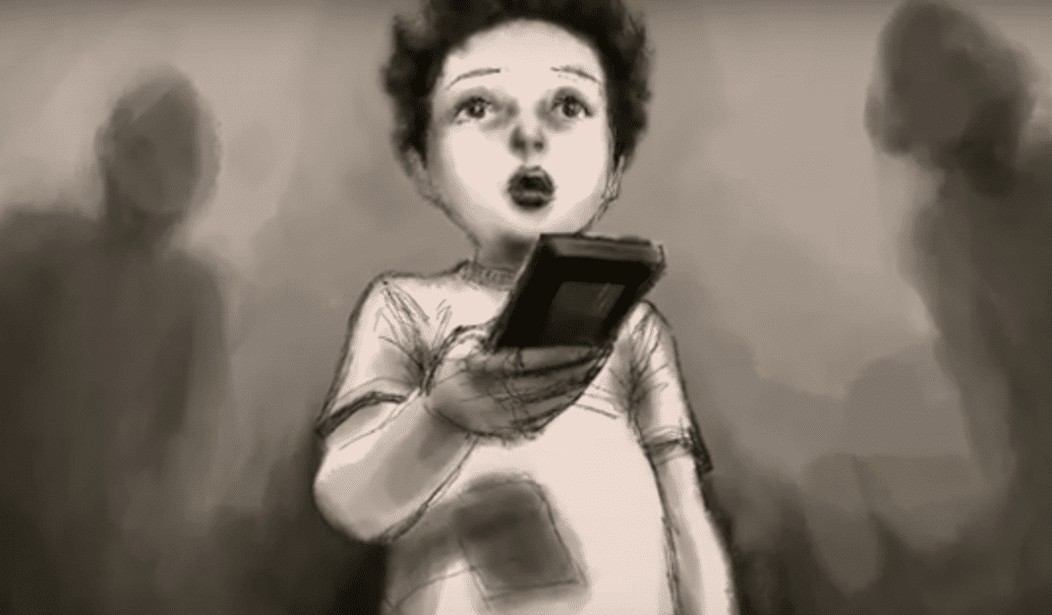If you had asked me yesterday whether I thought I might have anything in common with a 23-year-old autistic man living in a rural assisted-living community, I would probably have had to say no. I’m a 34-year-old non-autistic woman living with my husband and son in New York City. It would seem that he and I were worlds apart. But that was before I saw Life, Animated, one of five feature-length documentaries nominated for an Oscar this weekend.

Image: Facebook
The film itself, an adaptation of Pulitzer-winning journalist Ron Suskind’s book about his son Owen, is only okay. Its focus on using animations, created for the film, to illustrate parts of the narrative (including a long sequence depicting a story Owen wrote) really get in the way of the storytelling, rather than add to it. But, even so, the story itself is an amazing one, and one that, for me, hits pretty close to home.
It turns out that Owen and I actually do have something significant in common. See, we both share a passion for Disney animated classics. And, even though his passion is his lifeline to an otherwise incomprehensible world, and mine is just a slightly embarrassing (or wildly endearing, depending on how you look at it) obsession, the reason why he loves them showed me something about why I love them too.
Owen was a seemingly typical child but, at the age of three, he suddenly stopped talking and interacting with the world. (Side note: as a mother of a two-year-old, this aspect of the film utterly terrified me. So, trigger warning, if you’re into those.) For years, his family was unable to communicate with him, looking on helplessly as he obsessively watched and rewatched every animated Disney movie ever made.
But, one day, after having not spoken for three years, Owen walked into the kitchen and declared (speaking about his brother): “Walter doesn’t want to grow up. Like Mowgli or Peter Pan.” I think Owen’s mother, Cornelia’s, reaction pretty much sums it up: “What the hell just happened?”
What had happened, it turned out, was that Owen’s seemingly random cartoon watching wasn’t random at all. It was the lens through which he was trying to make sense of the world. And, once his parents understood that, it was what ultimately allowed him to reenter it.
Watching Owen express himself through these movies, that I love also, was incredibly moving for me. Like Owen, I’ve loved the Disney classics for as long as I can remember. The characters feel like old friends, the plots like perfect puzzle pieces, fitting together much more satisfyingly than in real life. A place to escape to that makes more sense than the real world. But I didn’t really know what it is about them that has caused me to carry my love of something inherently childish into adulthood. But Owen knows.
There’s a scene in the movie where he shows a group of other autistic young adults part of The Lion King. It’s the scene where Mufasa, Simba’s father, comes back as a ghost to tell Simba, “Remember who you are!” (If you’re not familiar with the movie, you can watch the scene here. Or just watch the whole movie. It’s really good!) “What was Mufasa teaching Simba?” Owen asks his friends. They discuss it for a few moments and then Owen summarizes: “It’s important that when our parents no longer can help us, that we have to figure things out by ourselves.”
These movies are a roadmap for growing up. A key to the adult world. They offer a kind of sparkling clarity that doesn’t exist in real life, which makes them easier to understand. But, while the movies are simple, they’re not simplistic. They deal with real feelings and real dilemmas that children face as they grow into adults. They show us that growing up is hard, but necessary and, ultimately, desirable. Our parents won’t always be there, but the things they taught us will. Love is worth fighting for. Your dreams are worth reaching for. The world, boiled down to its essence.
Which is exactly what Owen needed in order to reconnect with reality. A kind of cipher through which to run the messy and confusing experiences of real life. It’s what they do for me, too, albeit on a much smaller scale. The genius of these films is that, while they always end happily, they don’t shy away from things that are hard. People die, they face fear, they are disappointed, they hit rock bottom, they make difficult choices, and have to stand up to people who are frightening and mean. They aren’t exactly human. They’re not flawed in the same way we are. The trajectory of their lives is set toward happiness in a way that ours aren’t always. But they point the way. They illuminate the unexplainable just enough to give us a head start.
I didn’t know that this was their draw. Owen taught me. And he’s exactly right. They provide a framework for adult life, if adult life seems hard and confusing. As it does to me. As it does to Owen. In many ways, Owen is stuck in childhood. Even though, during the course of the film, he moves out of his parents’ home and into his own, he will always need additional care, and will always struggle with things that other people his age take for granted. But it also means that he understands something that I’ve always thought too. And he, himself, puts it best: “When you grow up you lose all your magical, enchanted, childhood times.”
But we have to grow up. All of us. Even Owen. And Disney can show us how.









Join the conversation as a VIP Member